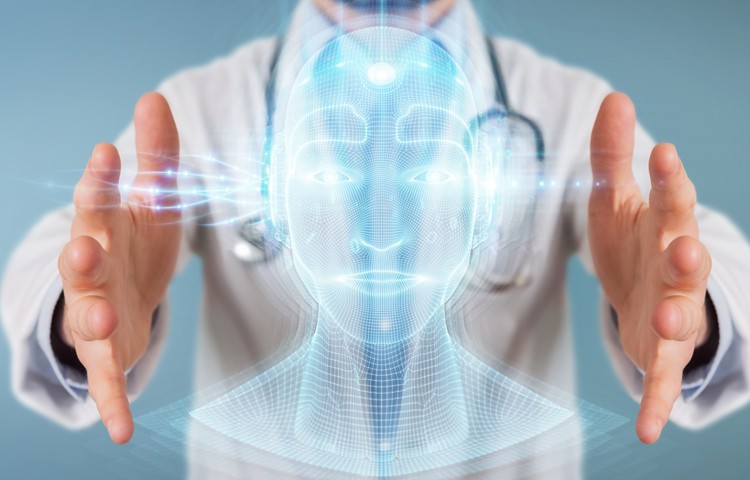
How Will Artificial Intelligence Mould & Change Medicine?
Artificial intelligence (AI) is often mistaken as a 21st century phenomena very much in its grassroots and infancy, however its history dates back to the early 1900s, years before the term ‘artificial intelligence’ was first coined. The first time AI was referred to by name was in 1956 by John McCarthy, an American Computer Scientist who defined it as, “the science and engineering of making intelligent machines”[i], but it could be said that the true infant years of AI occurred during the Second World War.
Advanced computer technology, coding and cryptography were key features of war strategy and communications during the period of 1939-45, and thus many advancements were made as it was explored how algorithms could operate as a powerful ally. War acting as a catalyst for fast-tracked improvements in industry is a circumstance no stranger to medicine, as its history and evolution has been transformed by the activities of physicians, nurses and surgeons during times of conflict which call for experimentation and impromptu cross-disciplinary team work to meet the high pace demands of the battlefield.
Alan Turing, an English Mathematician who played an important role in breaking the German Enigma code during WWII, wrote a paper in 1950 called “Computing Machinery and Intelligence”, and this paper proposed the hypothesis that machines could be designed to think as humans with their own in-built intelligence, and from this point thereafter a large scale exploration into this possibility has eventuated us where we are today with AI.[ii]
MEDICAL ARTIFICIAL INTELLIGENCE
For many thousands of years medicine has been practiced without the aid of artificial intelligence, where doctors, nurses and other healthcare professionals have performed an outstanding job without question. However, the rates of illness and disease, in particular but not limited to those associated with our lifestyle, have sky-rocketed in the last century and correspondingly the ability for advanced computer intelligence to support and improve the efficiency of patient care is being explored globally;
“… an AI-driven smartphone app now capably handles the task of triaging 1.2 million people in North London to Accident & Emergency (A&E). Furthermore, these systems are able to learn from each incremental case and can be exposed, within minutes, to more cases than a clinician could see in many lifetimes.”[iii]
So the big question is; what is AI’s place in modern day medicine and our future? And what is our intent in using computers to assist with the process of treating patients?
CURRENT TRENDS IN MEDICAL AI
There are a number of examples of where AI is being used or trialled in clinical practice, including:
DEFINED PROCEDURES AND CLASSIFICATIONS:
AI can now be used to complete defined medical tasks, where it can analyse data and produce a result out of a number of fixed classifications/options, such as images of skin lesions where AI can determine whether a picture shows either a ‘benign’ or ‘malignant’ tumour.
AI SUPPORTING TASKS AND MINOR OPERATIVE PROCEDURES:
Where responsibility is still in the hands of the doctor or professional in charge, AI can play an assistive role in minor operative procedures. For example, there is an ongoing clinical trial into the use of AI in head and neck radiotherapy where AI can offer a more precise analysis of the ‘target zone’ for the dose of radiation which can reduce negative side effects for the patient.
AI CAN ANALYSE LARGE POPULATIONS:
With large groups of patients, particularly when there is a limited resource of trained staff to deal with many cases, AI can interpret data or images and give a diagnosis. This can be useful in many areas, for example with a high TB-prevalence, where according to new research “AI correctly diagnoses pulmonary TB with a sensitivity of 95% and specificity of 100%”, and thus can a critically useful tool.[iv]
It’s evident that artificial intelligence can indeed fast track diagnostic processes, and perhaps even improve patient safety, and while we continue to look further into the possibilities of computerised medicine many are asking questions as to what extent this will go…
Does a computer truly substitute a trained medical professional, who has the ability to not only assess a patient’s symptoms but connect with the person in front of them, to understand their multi-dimensional state of well-being and not simply register them as an input of data?
[i] Peart, A. (2017). Homage to John McCarthy, the Father of Artificial Intelligence (AI). [online] Artificial Solutions. Available at: https://www.artificial-solutions.com/blog/homage-to-john-mccarthy-the-father-of-artificial-intelligence [Accessed 4 Jan. 2020].
[ii] Smith, C., McGuire, B., Huang, T. and Yang, G. (2006). The History of Artificial Intelligence. [online] Courses.cs.washington.edu. Available at: https://courses.cs.washington.edu/courses/csep590/06au/projects/history-ai.pdf [Accessed 4 Jan. 2020].
[iii] Buch, V.H., Ahmed, I. and Maruthappu, M. (2018). Artificial intelligence in medicine: current trends and future possibilities. British Journal of General Practice, [online] 68(668), pp.143–144. Available at: https://bjgp.org/content/68/668/143.
[iv] Buch, V.H., Ahmed, I. and Maruthappu, M. (2018). Artificial intelligence in medicine: current trends and future possibilities. British Journal of General Practice, [online] 68(668), pp.143–144. Available at: https://bjgp.org/content/68/668/143.

Nice Company…Appreciate!!! This company is helpful for those who looking how to develop a social media strategy about healthcare digital marketing in uk